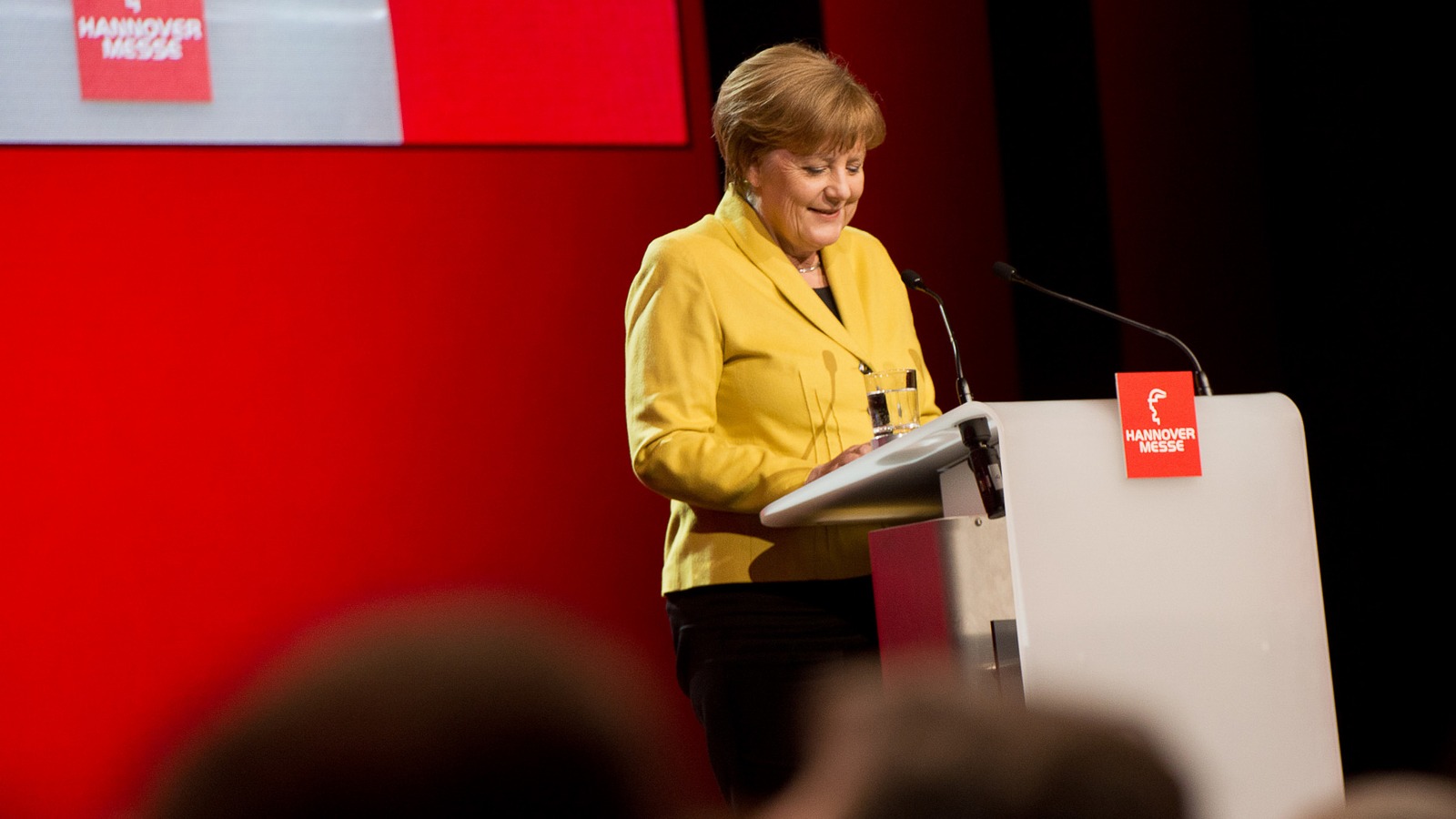
The rightwing Alternative for Germany (AfD) party took 20.8 per cent of the vote in the election for the state legislature in the north-eastern, sparsely-populated state of Mecklenburg-Vorpommern, Germany’s poorest region. In March, the AfD won nearly a quarter of the votes in the eastern region of Saxony-Anhalt, its best state result yet. Support for protest parties like the AfD tends to be higher in Germany’s poorer eastern states than in more prosperous and populous western states.
The centre-left Social Democratic party (SPD), Germany’s oldest political party and a junior partner in Angela Merkel’s coalition government, won the election, with 30.6 per cent of the vote, though the number was down from 35.7 per cent in 2011. The SPD will most likely lead a new coalition government in the region. Meanwhile, support for the centre-right Christian Democratic Union (CDU) of Chancellor Merkel fell from 23 per cent in 2011 to 19 per cent. The result was a blow for Mrs Merkel as Mecklenburg-Vorpommern is home to her constituency.
The AfD was founded only three years ago as a party, which opposed Germany’s membership of the euro. When the eurozone crisis was tackled – at least for a time being – with a third bailout for Greece, the appeal of the party dropped. The AfD’s fortune was revived by Mrs Merkel’s liberal policy towards asylum-seekers. Support for the party has risen from below 5 per cent nationally in the summer of 2015 to around 11 per cent. The AfD will certainly enter the Bundestag after the federal election in the autumn of 2017, becoming the first rightwing party to enter the federal parliament since 1945. Moreover, the AfD is likely to establish itself as the country’s third-strongest party as its calls for stricter controls on immigration are resonating with voters. That will fragment Germany’s hitherto stable political landscape and complicate efforts to form a governing coalition.
Last year, more than one million mainly Muslim asylum-seekers arrived in Germany from conflict-ravaged Syria, Iraq and elsewhere in the Middle East and north Africa, without being properly screened. German authorities expect another 250,000-300,000 refugees to arrive this year. A large proportion will be reliant on welfare handouts and will never integrate into western, liberal society. Chancellor’s open-door refugee policy has polarised German society and her plan to redistribute refugees across the EU caused a backlash in other EU countries, particularly in the Czech Republic, Hungary, Poland and Slovakia. Viktor Orban, Hungary’s prime minister, has even called a referendum on the issue next month.
Europe’s biggest refugee crisis since 1945 has stabilised as the closure of the Balkan route and particularly the EU’s deal with Turkey helped to stem the number of migrants and refugees crossing the Aegean into Greece. Mrs Merkel, however, has to counter the general feeling of insecurity and the widespread impression that public funds have been channelled to refugees. Critics have become more vocal, even from the political left. Sigmar Gabriel, the SPD leader and deputy chancellor, has seized the opportunity to distance himself from Mrs Merkel’s “We can do it” approach to refugee integration, accusing her CDU of underestimating the challenge. Mrs Merkel is also under pressure from her own conservative bloc to change course. Horst Seehofer – leader of the CDU’s Bavaria-based sister party, the Christian Social Union (CSU) – has frequently called for the reintroduction of border controls. Restrictions on refugees have wider appeal after recent terror attacks carried out by refugees inspired by Isis, the militant Islamist group.
Mrs Merkel herself has been weakened by her liberal policy towards refugees. Her personal rating has fallen to 45 per cent from more than 70 per cent before the crisis. However, she is still a big electoral asset for the CDU. Nobody stands a better chance to win the 2017 federal election than Mrs Merkel, who has yet to announce whether she will run for a fourth term as Chancellor.
photo: U.S. Department of Commerce Follow / CC BY-ND 2.0